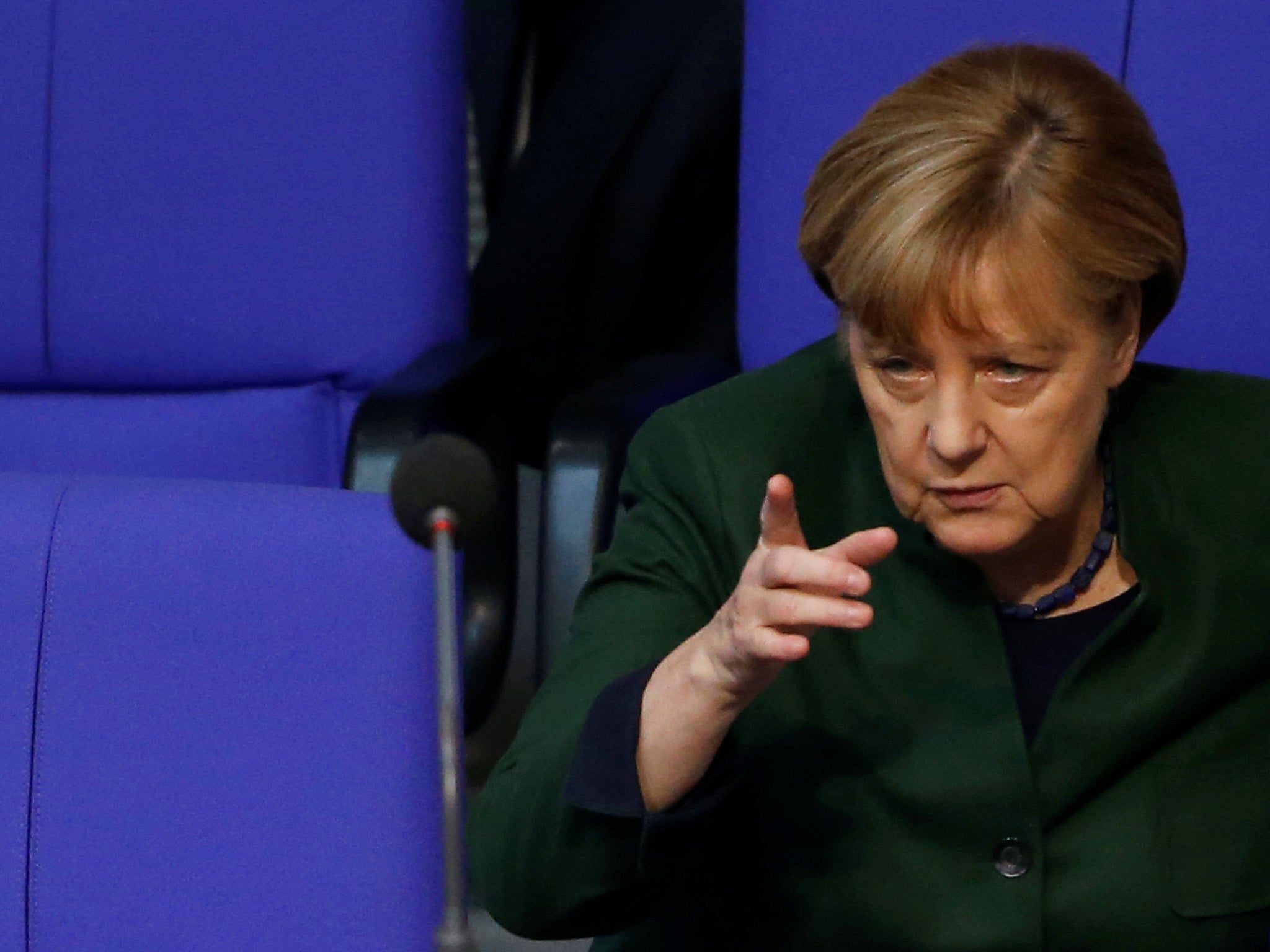Angela Merkel voices concern over fake news ahead of German elections
‘We should not underestimate what is happening’, warns German Chancellor

Your support helps us to tell the story
From reproductive rights to climate change to Big Tech, The Independent is on the ground when the story is developing. Whether it's investigating the financials of Elon Musk's pro-Trump PAC or producing our latest documentary, 'The A Word', which shines a light on the American women fighting for reproductive rights, we know how important it is to parse out the facts from the messaging.
At such a critical moment in US history, we need reporters on the ground. Your donation allows us to keep sending journalists to speak to both sides of the story.
The Independent is trusted by Americans across the entire political spectrum. And unlike many other quality news outlets, we choose not to lock Americans out of our reporting and analysis with paywalls. We believe quality journalism should be available to everyone, paid for by those who can afford it.
Your support makes all the difference.German Chancellor Angela Merkel has voiced her concern about fake news websites ahead of the German elections.
Fake news websites, which publish invented stories and sensationalist headlines while masquerading as genuine news sources, have proliferated in recent months.
Ms Merkel said that “opinions aren’t formed the way they were 25 years ago”, and warned that fake news websites and “trolls” could impact the results of the 2017 election.
In a speech in the Bundestag, Ms Merkel said: “Today we have fake sites, bots, trolls – things that regenerate themselves, reinforcing opinions with certain algorithms, and we have to learn to deal with them.”
Germany’s national elections will be held next year, and the anti-immigrant Alternative for Germany party is expected to make significant gains.
Since Trump’s victory, debate has raged over the impact fake news websites could have had on how people voted.
Many made-up stories were shared more widely on social media than reports from trusted sources.
Stories included Mr Trump being endorsed for President by Denzel Washington, Robert De Niro and the Pope.
Other examples included Hilary Clinton using a body double for public appearances, and a widely shared story that Mr Trump was born in Pakistan.
Ms Merkel indicated concern over the effects of such online sensationalism.
She said: “I believe we should not underestimate what is happening in the context of the Internet and with digitalisation – this is part of our reality.
“We have regulations that allow for our press freedom, including the requirement for due diligence from journalists. Today we have many that experience a media that is based on very different foundations and is much less regulated.”
“Populism and political extremes are growing in Western democracies,” Merkel warned.
Ms Merkel recently confirmed she planned to stand for a fourth presidential term.
Facebook chief executive Mark Zuckerberg said the social network would work to crack down on fake news sources, but insisted it was “pretty crazy” to think it had any effect on the election result.
Google has also announced plans to block websites publishing fake news from making money through Adsense, the company’s ad software.
Join our commenting forum
Join thought-provoking conversations, follow other Independent readers and see their replies
Comments